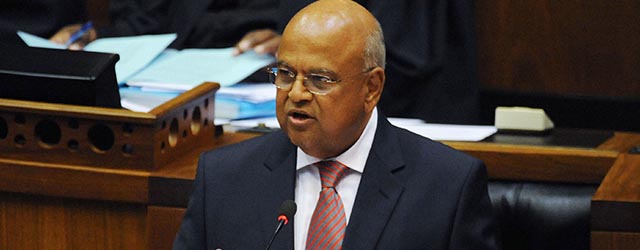South Africa: After burning through two Finance ministers in 18 months—with the second having held the job for less than a week—South Africa’s president, Jacob Zuma, moved in mid-December to restore a measure of stability to the post.

Under pressure from investors and voters, he appointed Pravin Gordhan, who had already served in the position from 2009 to 2014 and is well respected. But, compared with his earlier go-round, Gordhan has an uphill climb ahead of him this time.
Falling commodities prices, the slowdown in China and increasingly volatile global financial markets are causing serious economic headwinds for South Africa. The country is now simultaneously confronting sluggish growth, a deteriorating fiscal position and a weakening domestic currency, the rand.
“Gordhan faces a tough economic environment,” says Alexa Lion, senior analyst in the sub-Saharan Africa practice of global research and advisory firm Frontier Strategy Group. He will “need to balance the need for private investment with appeasing popular demands.” According to Lion, the new Finance minister’s priorities revolve around the need to restore investor confidence, contain public spending and consolidate the country’s finances. So unless conditions suddenly improve, South Africans might need to brace for both tax increases and budget cuts.
Gordhan is also likely to bring to the job a tougher approach toward state-owned enterprises. “He will push for new legislation to regulate SOEs,” says Lion. “He will be extremely hawkish in any government allocations to [electricity utility] Eskom and South African Airways, to name a few.” Finally, Gordhan has pledged to tread carefully in drawing on public funds to build new nuclear power plants. “We can’t spend money that we don’t have,” he said in a media briefing in December.
Gordhan seems determined to do what it takes. And, unlike his two predecessors, he is probably here to stay. That means South Africa may have a bitter pill to swallow. On the other hand, “removing Gordhan would create fresh market panic marked by capital outflows and currency depreciation,” says Lion. “It would also represent political suicide for Zuma, especially at a time when South Africa faces possible recession and a potential credit downgrade to junk status.”



